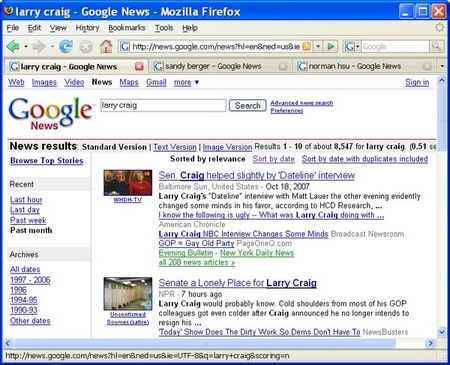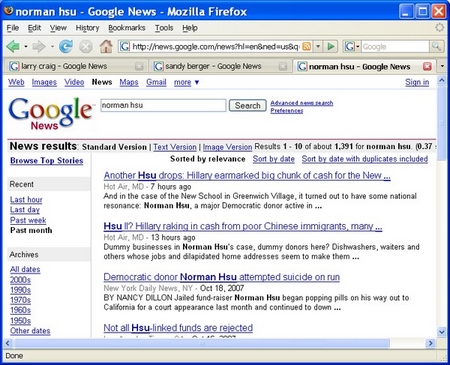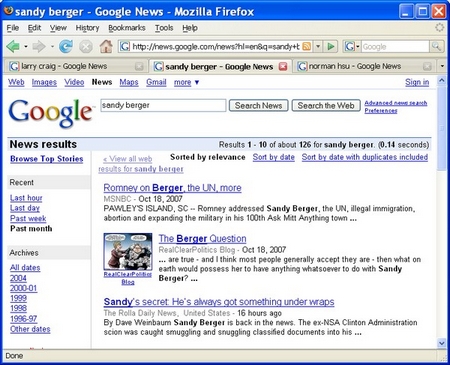The Kalamazoo Gazette thinks it’s just fine for the county to hire a lobbyist to get money out of the feds. No, really. It editorialized in favor of it in Tuesday’s paper. You can read the full thing here.
In a perfect world, lobbying would not be necessary. After all, we have two U.S. senators and several U.S. representatives who are elected to represent the interests of our state and region.
Commissioner David Maturen cast the lone dissenting vote. “I think we already have a lobbyist in Washington, D.C.,” Maturen said. “It’s called our congressman.”
In the ideal world, the congressman would go to jail if he tried lobbying administrative agencies on behalf of constituents. Such lobbying is not how things get done on the basis of merit. It’s how they get done on the basis of influence peddling.
But is it any better to have a paid lobbyist do it? Perhaps. But it’s still institutionalized corruption.
That’s true. But U.S. Rep. Fred Upton, a St. Joseph Republican whose district includes Kalamazoo County, can do only so much with a limited staff. Government, especially at the federal level, has become enormously complex.
Yes, the federal government has become enormously complex because it has its fingers in things that are not its proper business. If it didn’t have its greedy claws on all of those things, it could leave them to state and local entities, and we wouldn’t need these corrupt lobbyists to try to get things on our behalf.
And while lobbyists are perceived by many citizens as representing special-interest groups, many of these people have expertise that allows them to perform useful services. They assist and inform lawmakers by calling attention to the needs of communities large and small. They also serve as a pipeline for communicating local needs to the maze of federal government departments and bureaus.
That’s a damning indictment of the involvement of the feds in local issues. Of course they don’t know about local needs. That’s why the federal government should deal with national issues, not local ones.
Another advantage of a joint effort to obtain a regional lobbyist is the furthering of intergovernmental cooperation, which has been improving but still has a long way to go.
No doubt. So instead of the various governmental agencies being jealous of each others’ prerogatives, as they should be, we’re going to have institutionalized collusion. No wonder some people think it’s government vs the people.
We agree with Collard’s succinct remark regarding support for a lobbyist. “All too often,” he pointed out, “(federal) dollars are left on the table in Washington, and we certainly want our fair share.”
Federal dollars are being left on the table? I doubt it. I thought the government was running deficits. If money is being left on the table, why not use it to pay down the debt? But I don’t think that’s the case. I suspect that the Gazette didn’t do any fact-checking on this one.
And as county board member John Taylor pointed out, “…this is a great bang for our buck. You can’t get a lobbyist for $15,000.”
With many parties kicking in, the total investment in a lobbyist is not a major expense, especially considering that the effort could return millions of federal dollars here. We believe it’s worth a try.
If it’s a matter of getting our fair share of federal dollars, the way to do that is have the dollars stay in the states and communities in the first place. If, on the other hand, we’re trying to redress some imbalances, then it’s to be expected that some localities are not going to get “their fair share.” And it isn’t honest for the counties that can afford it to use their influence to beat out those who can’t afford lobbyists.


